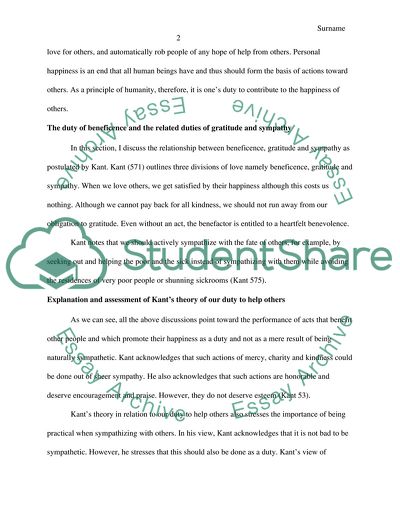Cite this document
(Kant - Duty of Beneficence in Groundwork of the Metaphysics of Morals Essay, n.d.)
Kant - Duty of Beneficence in Groundwork of the Metaphysics of Morals Essay. https://studentshare.org/philosophy/1769094-kant-duty-of-beneficence-in-groundwork-of-the-metaphysics-of-morals-and-metaphysics-of-morals
Kant - Duty of Beneficence in Groundwork of the Metaphysics of Morals Essay. https://studentshare.org/philosophy/1769094-kant-duty-of-beneficence-in-groundwork-of-the-metaphysics-of-morals-and-metaphysics-of-morals
(Kant - Duty of Beneficence in Groundwork of the Metaphysics of Morals Essay)
Kant - Duty of Beneficence in Groundwork of the Metaphysics of Morals Essay. https://studentshare.org/philosophy/1769094-kant-duty-of-beneficence-in-groundwork-of-the-metaphysics-of-morals-and-metaphysics-of-morals.
Kant - Duty of Beneficence in Groundwork of the Metaphysics of Morals Essay. https://studentshare.org/philosophy/1769094-kant-duty-of-beneficence-in-groundwork-of-the-metaphysics-of-morals-and-metaphysics-of-morals.
“Kant - Duty of Beneficence in Groundwork of the Metaphysics of Morals Essay”. https://studentshare.org/philosophy/1769094-kant-duty-of-beneficence-in-groundwork-of-the-metaphysics-of-morals-and-metaphysics-of-morals.


